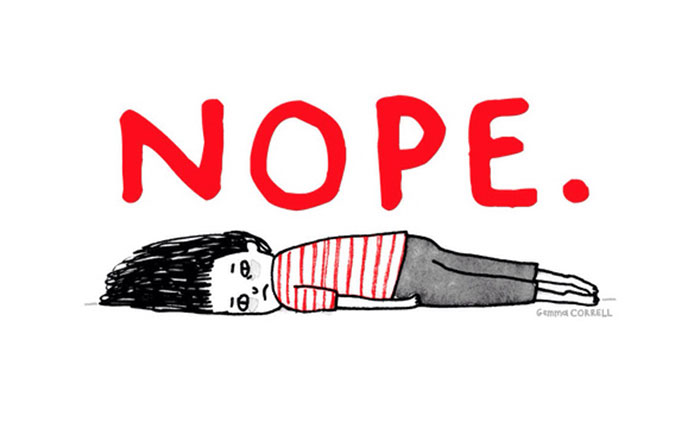Is your writing original? Probably not. But that’s no reason to get stressed about it. Raphaelle Race dives into the sea of neurosis that is the creative process.
The ‘anxiety of influence’ was first coined by one of America’s most beloved pomposities (also Professor of Humanities at Yale University), Harold Bloom. He used the term to talk about the fact that writers are constantly battling against every word they’ve ever read – especially the people they admire most – when the try to create original work.

For most writers this is because we got started by reading, we love to read and that love prompts us to create our own works of art. We all have a catalogue of favourite novelists, journalists and poets. We can’t help but take note of the people who managed to write *exactly* the words we want to say – but who got there before we did.
For Bloom, writers only get really *truly* original when they decided to destroy, distort or negate everything their literary ancestors created. He uses a bunch of high-falutin’ writers (Thomas Pynchon, Anne Carson etc. etc.) to illustrate this, but the thing is that everyone, in some way or another, experiences the anxiety of influence.
So, honestly, it’s no surprise that when you begin to type or scrawl your thoughts onto the page, the anxiety of influence can strike.
“Is there anything new to say in this genre?”
“Have I read this before?”
“Is this the same plot as…?”
“Am I really saying something as interesting as…?”
“Why can’t I think of a name that isn’t in something I’ve read before?”
“These themes are straight out of…”
“Should I be writing genre fiction at all? There are so many similar books in this genre.”
“Maybe I just need to come up with a better idea.”
According to Bloom, one of the ways that famous writers of historical literary movements overcame anxiety of influence was to become the anathema of their favourite literary writers.
It’s been well-documented that the famous literary movements often oscillate between realism (the idea that stories should reflect reality as much as possible) and romanticism (the idea that a story needs colour, design and exaggeration), each movement negating, destroying or inverting the ideas of their predecessors and attempting to create original work through this destruction.
The Dadaists of the 1930s are a great example, they wanted to destroy the structure of words entirely, they stripped words down to what they thought were ur sounds that were meant to convey meaning in a pure form. It made for some really really weird stuff, but hey they got pretty famous for doing it.
Another, easier, example is The Simpsons. When Matt Groening created the show, he took the quintessential mindless American formula of ‘situational comedy’ and turned it into a vehicle for social, political and environmental critique.
If you look at art history in this way, even the most famous of famousest of writers can’t be called original.
Despite the fact that they have produced radically different work – it’s all inspired (or perhaps repulsed by) other works of art.
The idea of originality can be enough to send even the most iron-nerved writer into an anxious spin. And when you’re in the ‘am I original’ vortex, it can be extremely hard to even settle on a subject to write about. You don’t want to write a hacked-up amalgamation of all your favourite stories, but neither do you want to write something that’s so original it’s impossible to sell or fit into the bookshop categories.
Elsewhere on this site, it's already been pointed out in a marvellous article on Joseph Campbell’s theory of the Monomyth the arc of so many stories, from Jesus to Harry Potter is pretty damn similar.
What stops it from being plagiarism is you: your thoughts, your personal experience. When you rely on the experiences of other writers to create your ideas – that’s when the art doesn’t stand up.
If you think you might have written something a little too similar to another story and it’s making you worry, here are some options:
• Join a writing group! If you find it hard to meet likeminded people, then there are plenty of online groups and communities (like us!) who share opinions and reciprocate critiques.
• Get a manuscript assessment! These can be a little more expensive, but if you want a polished, experienced and constructive critique, then these places (like Kill Your Darlings, Writers Victoria, Writers WA, Australian Society of Authors and others) are great places to go.
• Family and friends – these are a little more tricky. How many of us have asked a close family member to read something and gotten a lukewarm, “it’s great kiddo” sort of response. Also a lot of people don’t really want to do the work of providing a useful response, and often they won’t know how to give it either. If it’s easier to ask someone you know for some feedback, then ensure you tell them exactly what kind of feedback you’re after (grammar, plot, characterisation, is this too much like Twilight etc.) and prepare yourself for a punch to the ego.
Do you like Writers Bloc? We pay each and every one of our writers. Help us support the next generation of emerging writers through our Patreon account.
Click Here to Pay It Forward
itsapanda
Raphaelle Race is a professional writer and editor based in Melbourne. Her fun writing can be seen in Overland, Junkee, The Big Issue, Kill Your Darlings, Phantasmagoria and Feminartsy, among others. Like many others, she is writing a book.

